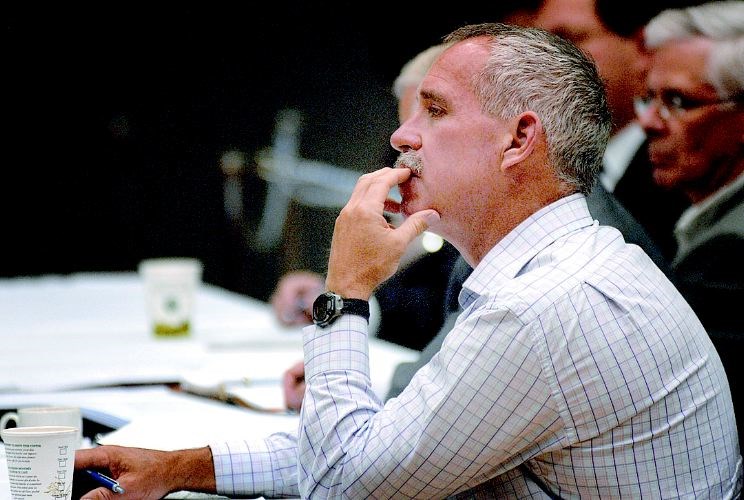TERRACE - Despite stiff opposition from First Nations, environmental groups and even the provincial government, Northern Gateway president John Carruthers is confident his company's oil pipeline will eventually be built through northern B.C.
"I think the chances of it going ahead are very probable," he told reporters outside a hearing room in Terrace where final oral arguments into the $6.5 billion project began Monday. "It's a tremendously needed project for Canadians to get full value for their resources which are critically needed and that need is even more urgent than it's been."
Northern Gateway is seeking to build a pipeline from Alberta's oilsands to Kitimat to allow diluted to be shipped to Asian markets. In making the case for the project in front of the National Energy Board's Joint Review Panel, lawyer Richard Neufeld said there could be severe economic consequences if the pipeline isn't built and the United States no longer accepts or desires Canadian oil exports.
"Canada would be facing, we submit, an economic catastrophe of unprecedented proportions," Neufeld said during his two-hour presentation, rebutting the evidence put forward by intervener groups.
Neufeld spent much of his alloted time dealing with concerns raised that Northern Gateway hasn't provided enough information to the panel at this stage in proceedings.
According to Neufeld, the fact that detailed spill response plans have yet to be tabled by the proponent is par for the course at this stage of the environmental review.
"It's not new, it's not unusual, it makes sense [for Northern Gateway] and it makes sense for all pipelines," he told the three-member panel.
The B.C. government has been among the most vocal that until more evidence is presented around spill response, it cannot recommend the project proceed and Carruthers said he looks forward to meeting with government representatives to discuss their concerns. The company president also acknowledged more work also has to be done to get Canadians on board with the plan.
"I think clearly there is an opportunity to meet the needs of most Canadians - clearly there are some that will be in opposition - but I think when people understand what we're doing, most people understand the need," Carruthers said.
Northern Gateway broke down the concerns presented by interveners into eight categories: project need, the risks presented by geo hazards, insufficient environmental information, marine transportation, spill prevention and response, bouyency of diluted bitumen, risk assessment procedure and Aboriginal rights and title. For each one, Neufeld tried to knock down arguments put forth by intervener groups, often calling them "counterproductive" or lacking merit. He accused interveners who challenged the amount of information currently on the record as not understanding the process.
"They're either misguided or willfully blind of the process used by your board to regulate pipelines in Canada," Neufeld said.
Neufeld also criticized some interveners for ignoring procedural directions, improperly citing its documents and declaring their evidence as uncontested when Northern Gateway believed that was not the case.
First Nations issues are likely to dominate the next phase of the hearings with groups like the Carrier Sekani Tribal Council vowing to launch legal challenges if the project is approved.
During his argument, Neufeld said it would be impossible for the panel to determine if enough consultation has occurred because the process is ongoing. He also took issue with some First Nations groups who claimed to have been ignored during the proceedings.
"They're wrong," Neufeld said. "Northern Gateway has listened and responded with unprecedented accommodation measures."
Northern Gateway will get one final chance to address the panel next week when oral arguments conclude. That presentation will be limited to discussing issues brought up during the oral arguments of others only.
The Joint Review Panel will make a recommendation to the federal cabinet by the end of the year.



